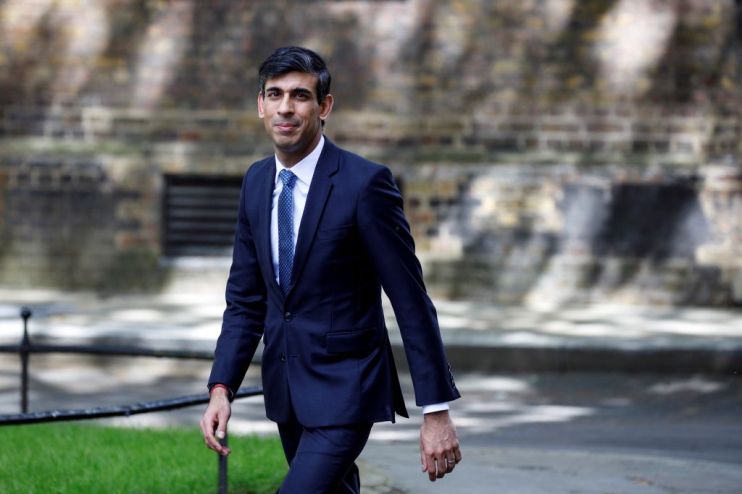Funding the Covid-19 recovery: Seize the opportunity to build a better tax system

The suspension of huge parts of the economy coupled with an unprecedented package of government support measures mean that tax revenues are falling while public spending is surging.
A leaked Treasury assessment estimated a £337bn budget deficit this year, nearly seven times the forecast in March’s budget. Analysts expect the debt-to-GDP ratio to be near 100 per cent next year – a level not seen in the UK since the post-War era.
There has been widespread support for the Treasury’s Covid-19 measures, but such a consensus evaporates when facing the question “who pays for it all?”. Unless chancellor Rushi Sunak asks Captain Tom to walk another 100,000 laps of his garden, he faces some difficult decisions ahead.
One option is to not repay it now, and instead live with much higher levels of national debt – the “World War II approach”. This has its appeal, especially with interest rates at incredibly low levels.
But a prudent chancellor may nevertheless wish to plug some of the gap. In this case there are two main options: cut public spending, or raise taxes.
Despite calls from some Conservatives to reinstate austerity, the Prime Minister seems to have ruled out further cuts to public spending. The crisis has taught us all the importance of resilient public services and a secure social safety net.
Tax then, is likely to have a key role to play. So who will pay?
For starters, expect changes to national insurance contributions for the self-employed (who pay nine per cent compared to the main employee rate of 12 per cent).
In March the chancellor commented that such a difference was, following the launch of the self-employment income support scheme, “much harder to justify”, adding pointedly “if we all want to benefit equally from state support, we must all pay in equally in future”. Industry bodies lobbying for government support might want to bear this statement in mind – perhaps there is no such thing as a free bailout.
But if almost everybody has benefited from the Treasury’s measures, should we all pay? As the leaked Treasury assessment reportedly states: “To raise fiscally significant amounts, we would either have to increase rates/thresholds in one of the broad-based taxes or reform one of the biggest tax reliefs.”
Of these, a rise in income tax rates is a front-runner for speed and revenue – HMRC estimates that increasing the basic and higher rates by one per cent would raise £4.7bn and £1bn respectively. But increasing a tax that reduces disposable income when the economy is recovering, especially if it hits lower income households, is politically hard to stomach.
Increasing capital gains tax may be politically more appealing, as it tends to be the wealthy with capital assets that benefit. The current differential (20 per cent in contrast to the top rate of income tax at 45 per cent) arguably also contributes to tax avoidance. Increasing capital gains tax might not sound like a classic Tory policy, but the fall of the “red wall” of Labour seats at the last General Election should still be front and centre of political minds.
Inheritance tax and wealth taxes are also ones to watch. Many economists argue that there is no economic disincentive created by taxing inherited freebies, as compared to taxing hard-earned income, but it is a brave Conservative chancellor who resurrects the “death tax” debate.
A wealth tax might have more political legs; a recent YouGov survey suggests that 61 per cent support a measure taxing individuals with net wealth over £750,000 (excluding primary residence).
Finally, tax avoidance and tax havens are always prime suspects for a crackdown. No doubt the chancellor is looking at Scotland and Wales (among other nations), which have already excluded companies in tax havens from receiving certain government support measures during the Covid-19 crissi.
But is this in fact an opportunity to build back better?
As the chancellor surveys his options, he cannot ignore the long-term shifts emerging from this pandemic: the move of businesses online, the want for protection of key workers, and an increased focus on environment, social and governance factors. These changes might present an opportunity for more radical reform.
For example, despite increased awareness of climate change, environmental taxes as a percentage of total tax revenue have decreased over the last five years. Now could be an opportunity to revisit the carbon tax, increase incentives for greener businesses, and create a clear environmental tax plan whilst sentiments are high.
Sunak faces difficult choices ahead, but as the population and economy adapt to a new world, so to must the UK tax system. These are unprecedented times and present a real opportunity for reform.
Main image credit: Getty